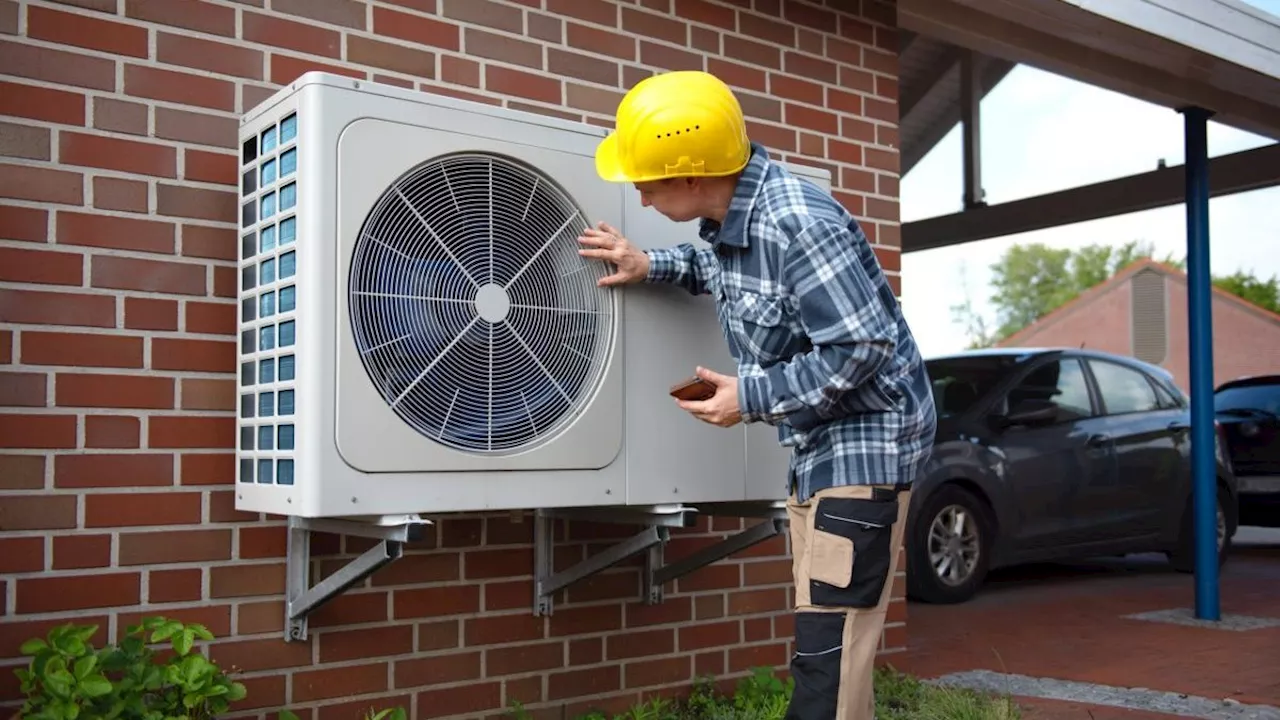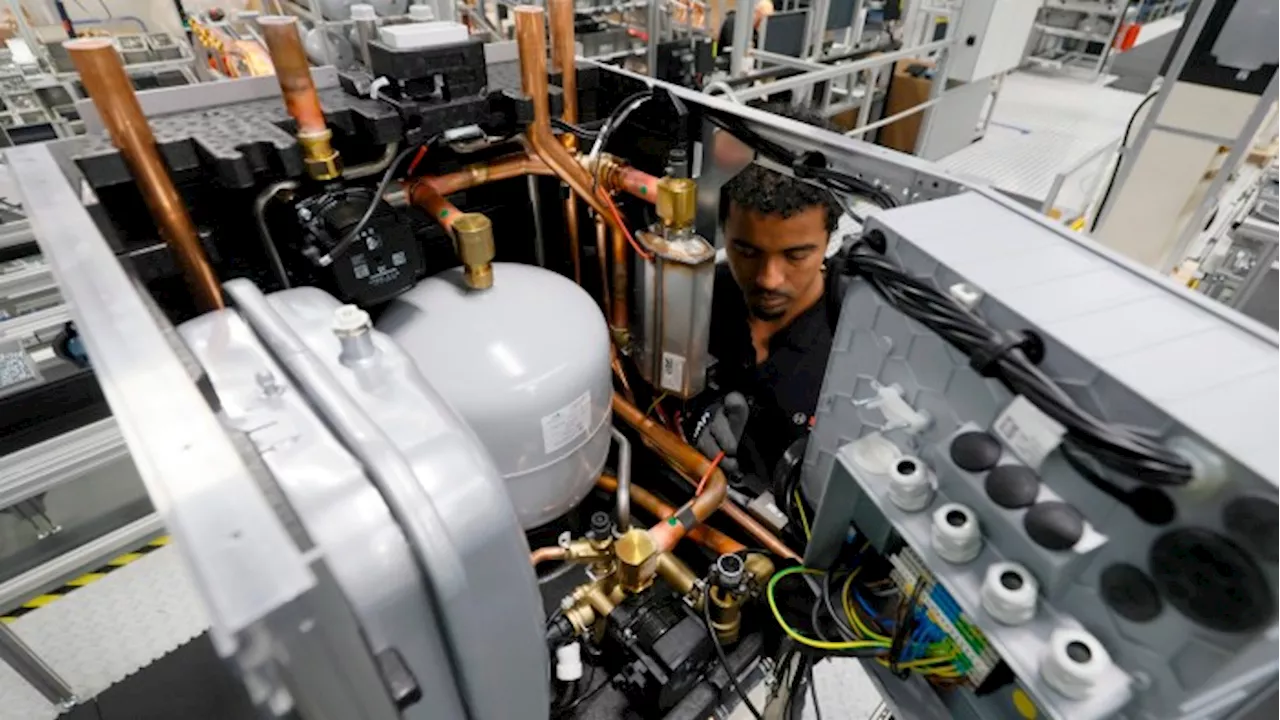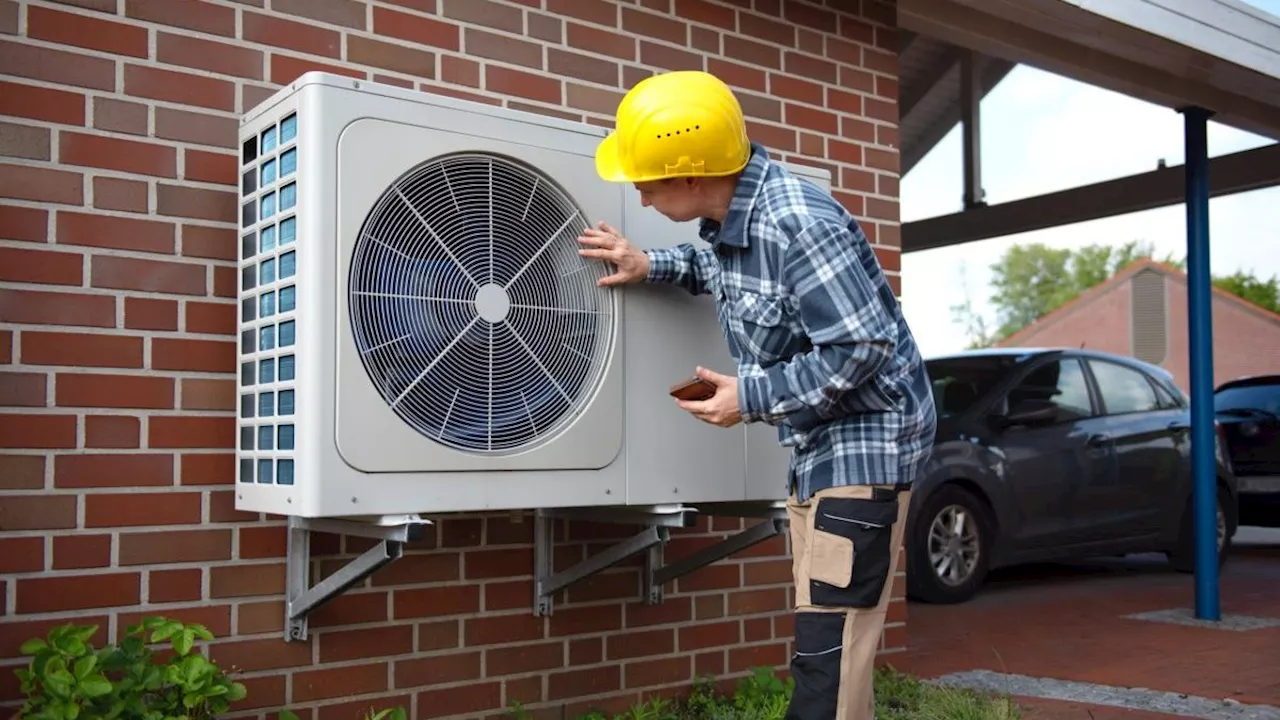Heat pump adoption in the UK is significantly lower than in other European countries, primarily due to the high cost of electricity compared to gas. Experts argue that this price disparity discourages homeowners from switching to heat pumps, despite their greater efficiency.
Heat pumps typically cost around £2,500 more than gas boilers, experts have warned.Installation rates are 25 times higher in Norway, and 18, seven and and five times higher in Finland, Italy and Germany respectively.And because the price of gas is much cheaper, there is little incentive for people to replace their gas boilers with heat pumps , experts argue. Heat pumps typically cost around £2,500 more than gas boilers, even after a Government grant that is available to help pay for them.
, requiring an upfront investment of around £5,500 (after the Government heat pump grant of £7,500 is factored in) – compared to an average cost of to produce the same amount of energy in the UK – with electricity costing 24.50 pence per kilowatt hour (kWh) compared to 6.24 pence for gas, according to Ofgem. The gap between electricity and gas prices is largely because most of the levies – such as to fund new solar and wind farms and to improve energy efficiency – sit on electricity rather than gas bills.to discourage fossil fuel use – charged on the carbon dioxide produced when generating electricity – is not applied to the gas burned in central heating boilers. As a result, in 2023 the UK had the most expensive electricity in Europe, compared to its gas price – and one of the highest electricity prices in absolute terms. Experts say this is likely to be the biggest reason why the country’s uptake of heat pumps is the lowest in Europe. The ratio is important because the higher the cost of electricity, the greater the running costs of a heat pump. This means it will take longer to pay off the higher upfront costs of installing a heat pump through savings on heating bills, which are due to the greater efficiency of heat pumps compared to gas boilers. One approach to levelling up gas and electricity bills would see a shift of levies from electricity to gas bills, making electricity cheaper and gas more expensive, Dr Rosenow said.“Alternatively, Government could shift levies to general taxation which would lover the price of electricity for households but not affect gas prices,” he said. “Or it could decide to exempt electricity used for running heat pumps from levies, an approach that has been adopted in Denmark, where electricity used in heat pumps attracts tax breaks.”: “Without a major increase in Government investment aimed at bringing down the upfront costs ; more wind and solar energy in our grid to bring down the cost of electricity; and the delivery of a nationwide heat pump roll out scheme, the Government’s target of 600,000 installations a year by 2028 will be difficult to meet. “But to help boost uptake and ensure success the Government must also tackle the skills gap and increase the number of heat pump engineers.” Dr Simon Harrison, of engineering consultancy Mott MacDonald, agrees that progress is being held back by a lack of heat pump engineers, but says this will improve as the industry “scales up” in the coming years. “I suspect a large part of the challenge for the UK is scale economies when retrofitting existing homes. Every home is different, and because heat pumps operate at lower temperature than gas boilers it can be necessary to change out radiators , so it’s not always a straightforward job,” he toldAnother good way to spur heat pump installations is to ban gas boilers in new homes, as has been done in countries such as Denmark, Austria, Belgium and the Netherlands, where heat pump uptake is much higher. This has not happened in the UK yet although the Government is expected to announce later this year that it will implement such a ban from 2027 as part of its UK heat pump installations have also suffered because the UK had so much cheap North Sea gas for so long, gas central heating has become engrained in the UK heating system in a way it hasn’t in other countries, scientists say. As a result, it is that much harder to prise people away from gas central heating than in other countries – even though the cheap North Sea gas has now largely dried up and gas prices have increased. Although the UK will need to significantly increase heat pump installations in the coming years if it is to have any chance of meeting its goals, last year did see a big improvement, with a 42 per cent rise in sales.A spokesperson for the Department for Energy Security and Net Zero said: “The energy shocks of recent years have shown the urgent need to upgrade British homes and ourThe Government will help more households in England to install an air source heat pump without the need to submit a planning application from this year, by removing the rule requiring them to be installed at least one metre from a property’s boundary. Meanwhile, the Heat Pump Training Grant is providing 10,000 opportunities to train up heat pump and heat network professionals, and the number of installers being trained is keeping pace with increasing household demand for heat pumps. The Government did not comment on whether it would look to bring down the price of electricity relative to gas
HEAT PUMPS ELECTRICITY PRICES GAS PRICES UK ENERGY POLICY CLIMATE CHANGE
United Kingdom Latest News, United Kingdom Headlines
Similar News:You can also read news stories similar to this one that we have collected from other news sources.
 UK has highest electricity prices in Europe - and lowest heat pump uptakeHeat pumps typically cost around £2,500 more than gas boilers - while electricity in the UK costs the most in Europe when compared with gas price
UK has highest electricity prices in Europe - and lowest heat pump uptakeHeat pumps typically cost around £2,500 more than gas boilers - while electricity in the UK costs the most in Europe when compared with gas price
Read more »
 Heinz Factory to Go Green with Heat Pump ProjectKraft Heinz receives government funding to install a heat pump system at its Wigan factory, aiming to reduce carbon emissions and operational costs.
Heinz Factory to Go Green with Heat Pump ProjectKraft Heinz receives government funding to install a heat pump system at its Wigan factory, aiming to reduce carbon emissions and operational costs.
Read more »
 Heat Pump Installation Costs: Beyond the Initial Price TagThis article explores the hidden costs associated with heat pump installation, including annual servicing fees and the need for home insulation upgrades.
Heat Pump Installation Costs: Beyond the Initial Price TagThis article explores the hidden costs associated with heat pump installation, including annual servicing fees and the need for home insulation upgrades.
Read more »
 UK Scraps 2035 Gas Boiler Ban Despite Heat Pump PushThe UK government has abandoned plans to ban new gas boiler installations by 2035, despite encouraging homeowners to switch to heat pumps. The move comes despite the government's target of installing 600,000 heat pumps annually by 2028. The National Audit Office (NAO) criticized the slow progress in raising awareness and encouraging the adoption of low-carbon heating alternatives.
UK Scraps 2035 Gas Boiler Ban Despite Heat Pump PushThe UK government has abandoned plans to ban new gas boiler installations by 2035, despite encouraging homeowners to switch to heat pumps. The move comes despite the government's target of installing 600,000 heat pumps annually by 2028. The National Audit Office (NAO) criticized the slow progress in raising awareness and encouraging the adoption of low-carbon heating alternatives.
Read more »
 Heat Pump Sales Surge in Germany Amidst Election FearsBuyers in Germany are rushing to purchase heat pumps before a potential conservative government takes office and eliminates subsidies for renewable heating systems.
Heat Pump Sales Surge in Germany Amidst Election FearsBuyers in Germany are rushing to purchase heat pumps before a potential conservative government takes office and eliminates subsidies for renewable heating systems.
Read more »
 Heat Pump Sales Surge in Germany Amid Fears of Subsidy CutsA potential shift in German government policy towards renewable energy heating is sparking a rush to purchase heat pumps. Conservative parties threaten to scrap subsidies for heat pump installations, leading to a surge in demand and concerns from supporters of the current green energy policies.
Heat Pump Sales Surge in Germany Amid Fears of Subsidy CutsA potential shift in German government policy towards renewable energy heating is sparking a rush to purchase heat pumps. Conservative parties threaten to scrap subsidies for heat pump installations, leading to a surge in demand and concerns from supporters of the current green energy policies.
Read more »
